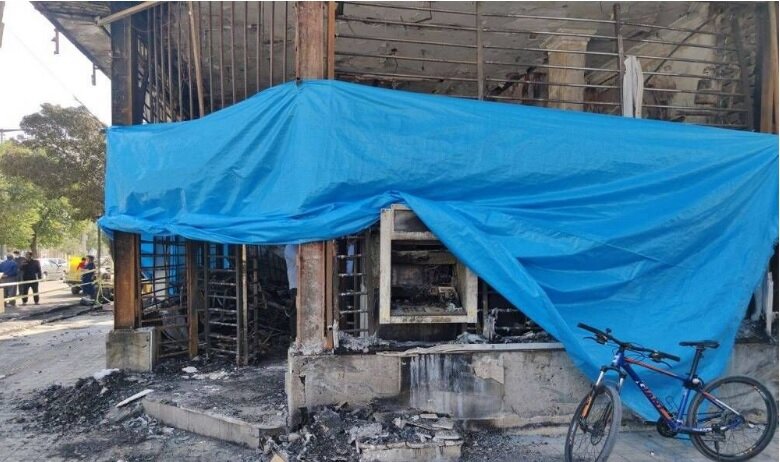Riots' long-term consequences for Iranian economy

TEHRAN - Iran has witnessed incidents of street violence over the past few days following the death of a 22-year-old woman, Mahsa Amini, in hospital after she was taken by morality police for violating social dress codes.
Despite clarification on the circumstances surrounding Amini’s death, with the incitement of anti-Iran media, rioters appeared in the streets of some cities and damaged public property.
The violent protests led to attacks on security officers and acts of vandalism against public property as well as ambulances and police vehicles.
Economy experts believe that such acts of vandalism, in addition to their immediate consequences, are going to have significant negative impacts on the Iranian economy in the long term.
According to University Professor and Economy Expert Gholamreza Khankeshi-Pour, the impact of the riots can be considered from two aspects, one is the financial impacts summed as a series of damages to public property, public funds, all kinds of ambulances, fire brigade, police, municipal machinery, buildings commercial, office buildings, banks, hospitals, mosques and the other is the loss of lives, mental and psychological distress and disruption of people's comfort and peace.
Mentioning the banning of some social media platforms like Instagram in the wake of the riots, Khankeshi-Pour said the limitations on access to such platforms will impose a great load on online businesses that are active on these apps.
Emphasizing the need to pay attention to the destructive effect of unrest on the country's macroeconomics, he said: “The most important damage from unrest is on the macroeconomics, because the security of investment, especially foreign investment, which has grown significantly in recent years, can be severely affected by the unrest.”
Head of the Iran Chamber of Guilds Ghasem Nodeh-Farahani also believes that various businesses were damaged due to the recent unrest and this issue challenges the country’s economy.
“Guilds in different parts of the country suffered from this situation because some of the businesses started their activities in the evening hours and continued until midnight and the riots forced them to close up their shops,” Nodeh-Farahani said.
Emphasizing that security and peace are the prerequisites for economic growth, the official stated: “Due to the riots, not only the businesses that are directly related to the street conditions will be affected but all the country's economic cycle will also be impacted.”
“In the economic cycle, all sectors are dependent on each other, and creating a disruption in one of the sectors will involve other sectors as well because guilds should operate as a group and not individually,” he explained.
Regarding the damages to public properties, Abdolmotahar Mohammadkhani, the spokesman of Tehran Municipality, told Tasnim news agency that during the recent riots, 25 light and heavy vehicles and one Toyota vehicle with full equipment belonging to the Tehran fire department and safety services of Tehran Municipality were destroyed.
The official estimated the damages imposed on the Tehran public properties at about 165 billion rials (over $550,000).
The government has said that the rioters must compensate for the damages they caused to public properties.
Iran's government spokesman Ali Bahadori-Jahromi said in late September that the rioters and those who provoked them in the recent unrest must compensate for the harm they caused to the Iranian nation.
"In recent days, we have seen organized acts of sabotaging the grounds for which were prepared by the opposition media," Bahadori-Jahromi said on the sidelines of the cabinet session.
Although the short-term damages caused by the unrest might be compensated relatively fast, the long-term consequences on the economy are in fact more significant.
Hopefully, the government will come up with some ideas to handle the situation and alleviate the limitations on access to some platforms on which many businesses are currently active.
EF/MA
